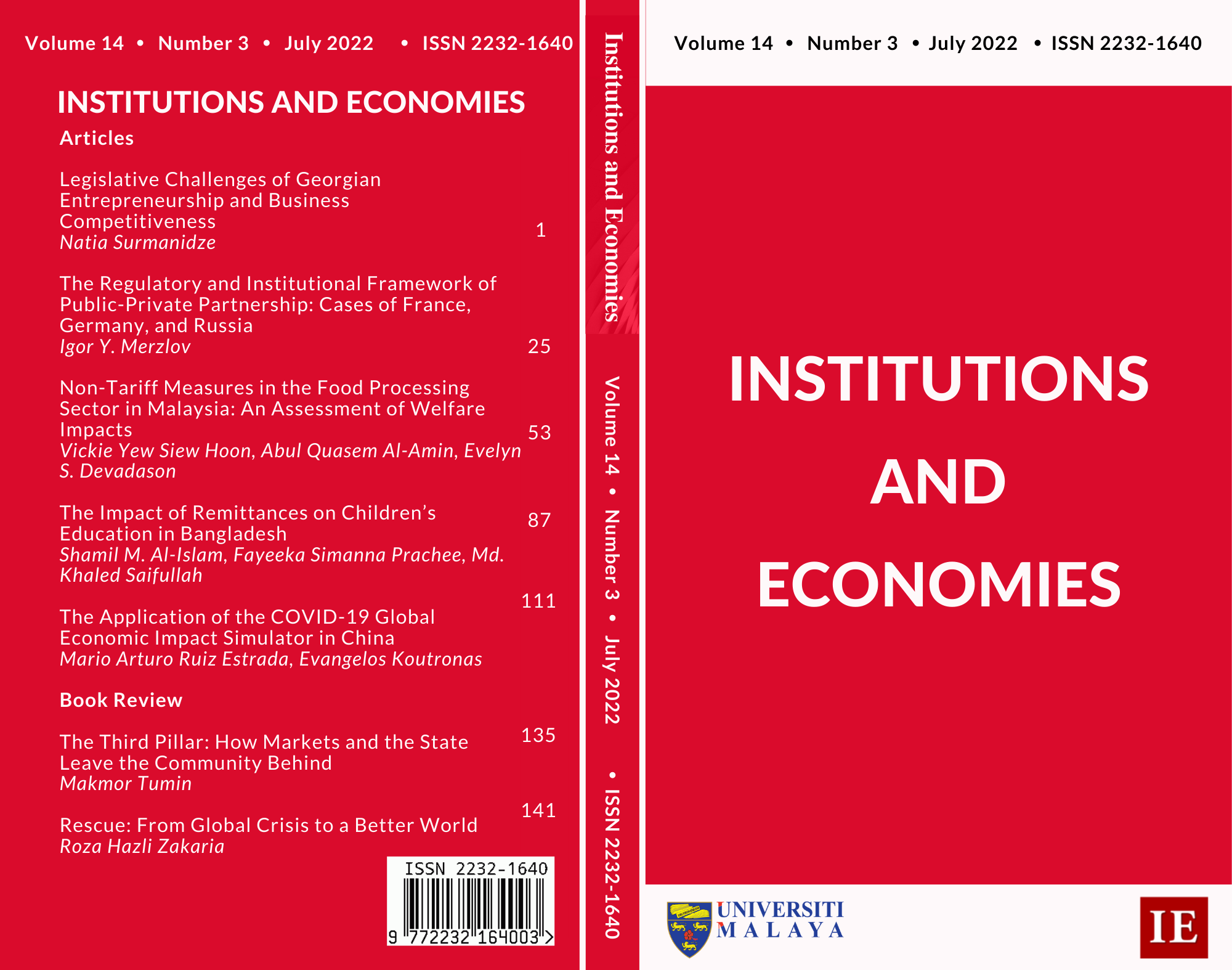Non-Tariff Measures in the Food Processing Sector in Malaysia: An Assessment of Welfare Impacts
Main Article Content
Abstract
Given the ambiguity of the overall welfare effects of non-tariff measures (NTMs), this paper furthers our understanding of the well-being of consumers by focusing on a single sector analysis. It examines the welfare effects associated with the highly regulated food processing sector in Malaysia. A comparative static computable general equilibrium model is employed to quantify the welfare impacts of a partial removal of NTMs, or a reduction in trade restrictiveness of NTMs. The simulation results indicate welfare gains, albeit minimal (not more than 2%), from a partial reduction in NTMs, both in the short run and long run. A plausible reason for the somewhat small gains in welfare in the food sector is the dominance of standard-like measures relative to price or quantity-based regulations. The positive and small welfare effects from a partial removal of NTMs suggest that some regulations in the food processing sector may be pervasive in that they may embed some protectionist elements and/or they do not address genuine market failures. Therefore, this paper concludes that there is still scope for regulatory reform in the food processing sector in Malaysia.
Downloads
Article Details
Submission of a manuscript implies: that the work described is original, has not been published before (except in the form of an abstract or as part of a published lecture, review, or thesis); that is not under consideration for publication elsewhere; that its publication has been approved by all co-authors, if any, as well as tacitly or explicitly by the responsible authorities at the institution where the work was carried out. Transfer of copyright to the University of Malaya becomes effective if and when the article is accepted for publication. The copyright covers the exclusive right to reproduce and distribute the article, including reprints, translations, photographic reproductions, microform, electronic form (offline and online) or other reproductions of similar nature.
An author may self-archive the English language version of his/her article on his/her own website and his/her institutions repository; however he/she may not use the publishers PDF version which is posted on www.ijie.um.edu.my. Furthermore, the author may only post his/her version, provided acknowledgement is given to the original source of publication and a link must be accompanied by the following text: The original publication is available at www.ijie.um.edu.my.
All articles published in this journal are protected by copyright, which covers the exclusive rights to reproduce and redistribute the article (e.g. as offprint), as well as all translation rights. No material published in this journal may be reproduced photographically or stored on microfilm, in electronic database, video disks, etc., without first obtaining written permission from the publishers. The use of general descriptive names, trade names, trademarks, etc., in this publication, even if not specifically identified, does not imply that these names are not protected by the relevant laws and regulations.
The copyright owners consent does not include copying for general distribution, promotion, new works, or resale. In these cases, specific written permission must first be obtained from the publishers.

